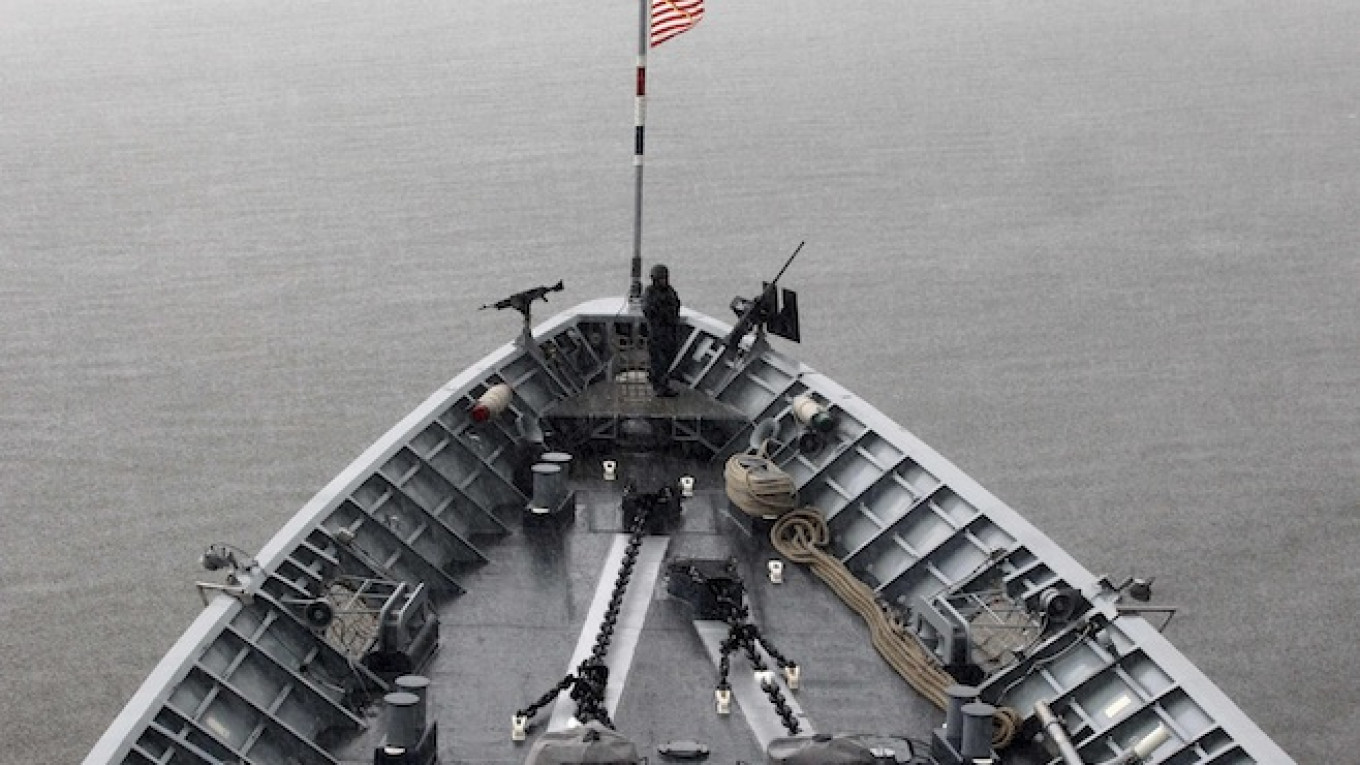Russia would consider any further expansion of NATO forces near its borders a "demonstration of hostile intentions" and would take political and military measures to ensure its own security, a senior diplomat was quoted on Monday as saying.
The comments come amid a deep crisis between Russia and the West over Ukraine and days after U.S. President Barack Obama offered increased military support for eastern European NATO members to ease their concerns over Moscow.
"We cannot see such a build-up of the alliance's military power near the border with Russia as anything else but a demonstration of hostile intentions," Deputy Foreign Minister Vladimir Titov told Interfax in an interview.
Speaking last week in NATO-member Poland, Obama unveiled plans to spend up to $1 billion on supporting and training the armed forces of alliance states bordering Russia.
The White House also said it would review permanent troop deployments in Europe in the light of the Ukraine crisis, but fell short of a firm commitment to put troops on the ground, as sought by Poland as a security guarantee.
"It would be hard to see additional deployment of substantial NATO military forces in central-eastern Europe, even if on a rotational basis, as anything else but a direct violation of provisions of the 1997 Founding Act on relations between Russia and NATO," Titov said.
"We will be forced to undertake all necessary political and military measures to reliably safeguard our security."
Russia has long opposed NATO's eastward expansion as threatening its own security and said Kiev's plan to associate itself more closely with the West — including with the military alliance and the European Union — has forced it to react.
The West accuses Russia of meddling in Ukraine to keep the former Soviet country in its sphere of influences.
See also:
A Message from The Moscow Times:
Dear readers,
We are facing unprecedented challenges. Russia's Prosecutor General's Office has designated The Moscow Times as an "undesirable" organization, criminalizing our work and putting our staff at risk of prosecution. This follows our earlier unjust labeling as a "foreign agent."
These actions are direct attempts to silence independent journalism in Russia. The authorities claim our work "discredits the decisions of the Russian leadership." We see things differently: we strive to provide accurate, unbiased reporting on Russia.
We, the journalists of The Moscow Times, refuse to be silenced. But to continue our work, we need your help.
Your support, no matter how small, makes a world of difference. If you can, please support us monthly starting from just $2. It's quick to set up, and every contribution makes a significant impact.
By supporting The Moscow Times, you're defending open, independent journalism in the face of repression. Thank you for standing with us.
Remind me later.






